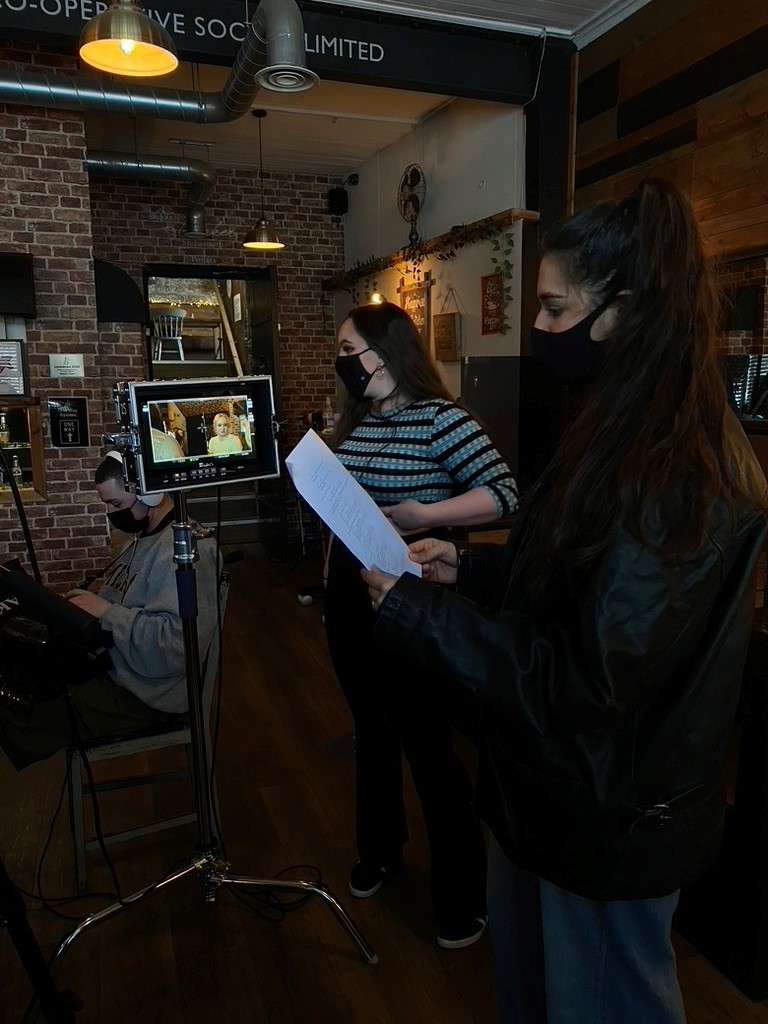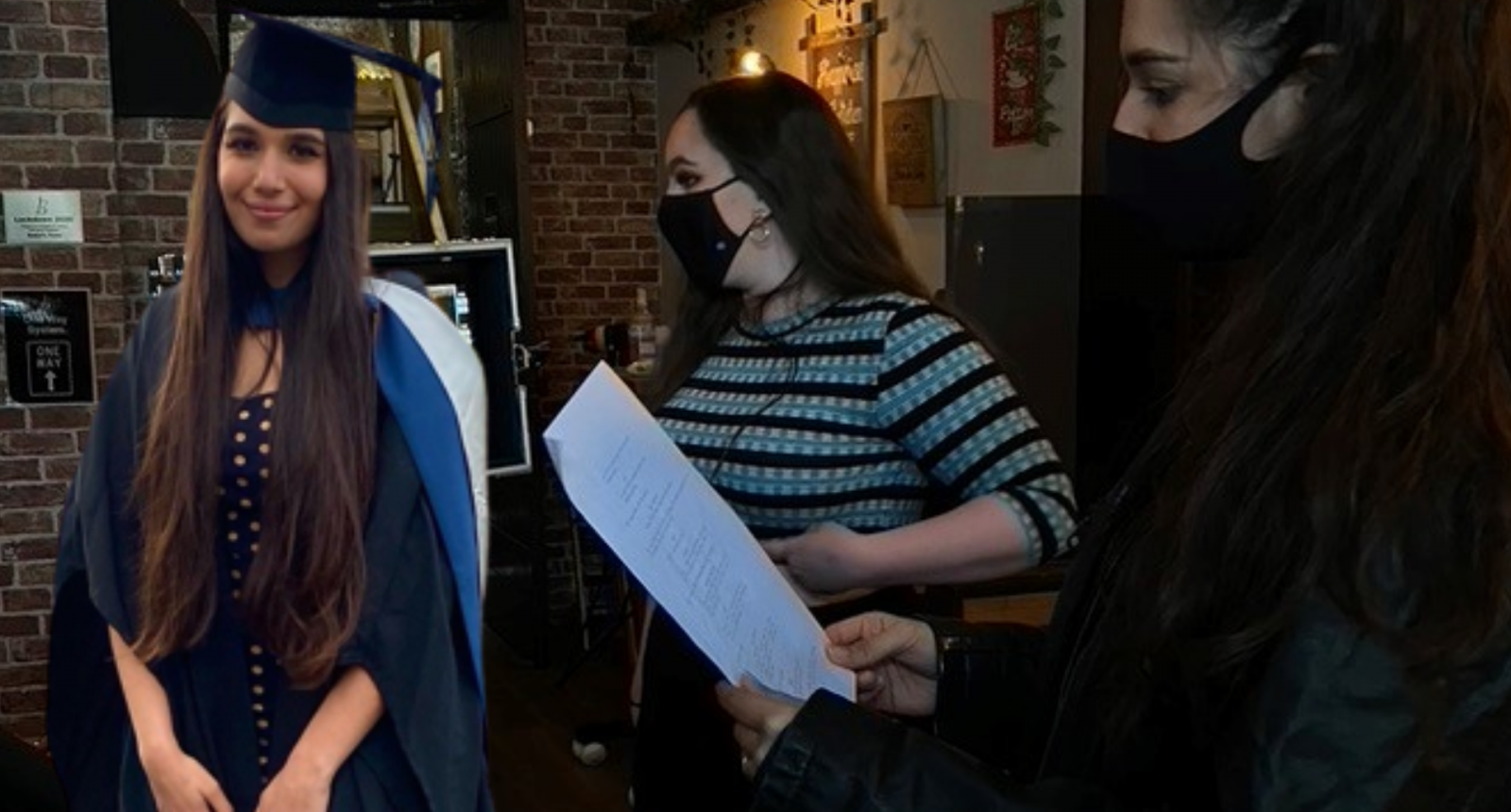Isobel Rubin was a student at The University of Salford’s MediaCityUK Campus. Since leaving Salford, Isobel has been accepted onto the BBC’s Advanced Production Trainee Scheme. She tells us more about working in the highly competitive TV industry.
What made you choose The University of Salford?
I chose the University of Salford as I was always excited by the prospect of moving far away and experiencing a new city, and I was super impressed by the Film Production course, it’s a balance of both practical and analytical work content, and its location in Media City – to me, it seemed like a no-brainer!
What does a typical day look like in your job?
A typical day for me always starts with tracking industry news for my team, where I look at other companies we both work with/share the live-action kids and family space with (e.g. Netflix, Amazon Prime etc) and record whether there are any strategy updates or new projects in development in the kids/teen/family live-action space. I then usually have meetings throughout the day, which can range from creative brainstorms for new series ideas, genres we haven’t explored yet, or strategic moves that align with current trends/gaps in the market, or it could be a meeting specific to one of our shows we are developing, so we could be writing notes on a new script, meeting with a writer and delivering said notes, or planning a verbal pitch/working on visual work for both internal and external pitches. Additionally, I do a lot of visual work, designing visual pitches and series bibles (a visual overview of the show, with a lot of text outlining what it’s all about, episode stories, characters etc), and above all reading a LOT of content; whether it’s a books/scripts we’re considering developing or work from a potential writer we want to work with, it’s a lot of reading and assessing content and it’s potential, as most of our shows are adaptations from pre-existing content.
What’s your favourite thing about working on television?
My favourite thing about working in TV is definitely the creative freedom and the fact that every day I get to go to work and do what I love! The TV industry is certainly intense and instinctive, but it’s also really exciting, collaborative, and an amazing feeling when something you’ve thought of is incorporated into a show that you’ll one day watch on screen. I am also very fortunate to work with a lot of wonderful mentors and industry experts who take the time to guide and teach me as much as possible.
If you had one message to current students what would it be?
My message to current students would definitely be to take the time to consider all the schemes and entry-level opportunities that companies have to offer! I wouldn’t have gained my place on the BBC Studios Kids and Family Live-Action Development Team if I hadn’t applied to the BBC Advanced Production Trainee Scheme during my third year, which was nearly a year-long application process. I never even thought I’d get through to the second round of the application process, but here I am! I also think it’s super important to trust your creative instincts and go with your gut – it’s usually right!
What was your most memorable learning experience at The University of Salford?
My most memorable learning experience at the University of Salford would probably be my script writing lectures, as even though I didn’t always do as well as I hoped, I use those skills all the time in my job, and can effectively edit and deliver notes to professional scriptwriters now, which is crazy! I also think learning to adapt around Covid, specifically with filming my final film in my third year was a major challenge that definitely taught me to think outside of the box, and above my wonderful coursemates really made my entire university experience memorable and so much fun, we had the best collaborative relationships and they always amaze and inspire me with their work.


 GRADUATE VOICE
GRADUATE VOICE 
 Twitter
Twitter Facebook
Facebook Google+
Google+ LinkedIn
LinkedIn